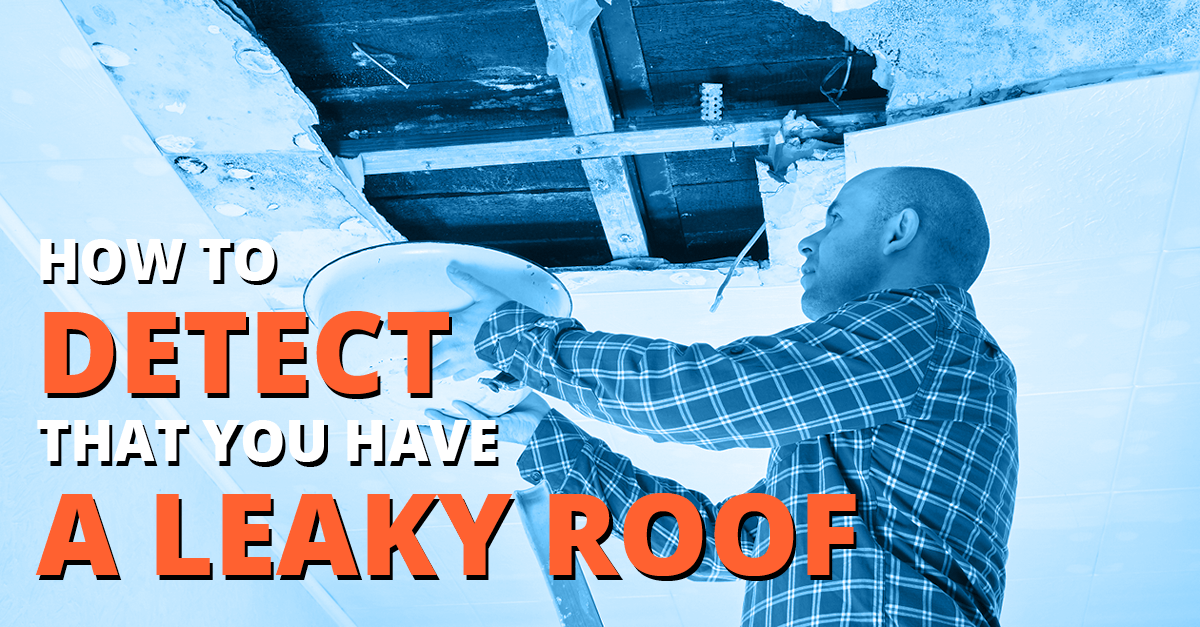
There are many causes and signs of leaky roofs. The most obvious leak is the one where your ceiling crashes to the floor and water gushes down into your bedroom or kitchen. Most roof leaks are much more insidious. They can cause damage you don’t see right away.
It’s Raining a River
California is getting more rain in 2019 and the trend is expected to continue. National Geographic explained the recent California rain increase. It said an atmospheric river – concentrated moisture and strong winds – brought excessive rain to the west coast.
Heavy Rains: Good for Crops; Bad for Roofs
No matter what the age of your roof, if it hasn’t been well-maintained heavy rains can quietly erode your roof’s waterproofing components and materials. If your shingles or flashing are already weak, this year’s heavy rains can be the straw that breaks the camel’s back.
If your gutters haven’t been cleaned regularly, water can pool near roof edging or worse: drip down and pond around your foundation, causing deterioration there. When it comes to your home’s roof, hoping for the best but planning for the worst can save money in the long run.
5 Indoor Signs You Have a Roof Leak
Roof leaks eventually have indoor, visible signs. Contact your Pasadena-area roof professionals if you see:
- Health issues – Cold symptoms like itchy, watery eyes, sneezing, headaches, runny or stuffy noses that won’t go away are clues you may have moisture damage or mold from a leaky roof.
- Moisture deterioration – Moisture damage can include paint chipping, rusty pipes, or wallpaper peeling near the ceiling.
- Mold – Signs of mold indicate a problem. It’s not necessarily contained in the moldy area. Some of us have a sense of smell that can sniff out mold without visible clues. If your home has a slight “mildewy” smell that increases during damp weather, look beyond walls and ceilings to find its source.
- Stains or spots – A water stain is usually very light and ringed with a darker brown color. But some water stains or spots are more difficult to see, especially in dark corners near ceilings. Any discoloration on your walls or ceiling needs immediate investigation.
- Water drips – Indoor drips and wall moisture may come and go, but they are red flags. Even if it goes away, a drip can cause unseen – and expensive – damage.
7 Outdoor Signs You Have a Roof Leak
A visual inspection of your home from the ground is easy and sensible. Go outside and look up. Do you see any of these outdoor signs of a roof problem?
- Branches, tree limbs – Overhanging tree limbs or branches can be the cause of roof deterioration and leaks. Always keep trees trimmed back.
- Damaged, loose boots around vent pipes – The water-prevention seals around your vents are called “boots.” If you see they are loose or dented, have them repaired before damages lead to roof replacement.
- Downspouts and gutters – Gutters that haven’t been well-maintained are frequent sources of leaky roofs. The clogs cause deterioration from pooled water can affect your roof underlayment as well as shingles and tiles. Your gutters appearing to pull away from your house is another red flag.
- Exposed flashing or underlayment – Damaged or poorly installed flashing is a primary cause of roof leaks. From the ground, you can see signs of metal or steel flashing around roof edges and in-between shingles. Repairs are needed if you see damage.
- Missing or damaged shingles – If you can see loose shingles anywhere (especially near chimneys and vents), act quickly. Water may be leaking into the space between your roof and indoor ceilings.
- Spots at your roofline – Look for water spots where the exterior walls meet the roof. Water spots are signs of roof leakage.
- Vegetation – Climbing vines and mossy exteriors can be attractive, but more often they are trapping damage-causing moisture near your roof or downspouts.
Leaky Roof: Now What?
You’ve seen one or more signs you may have a leaky roof. What should you do? You should contact a roofing company with a proven track record in your community.
You want a roofing company that is experienced and accountable for a higher quality of workmanship. Most important, you need roofing specialists who care more about what is best for you than what is best for their bottom line.
You Need Roof Repair Specialist
Your local team of professionals from Roof Repair Specialist receives ongoing training and certification to meet the building codes and regulations of Los Angeles County. We serve:
- Burbank
- Glendale
- La Canada
- La Crescenta
- Long Beach
- Pasadena
…and nearby communities. Call or contact Roof Repair Specialist today. You can also schedule a no-obligation, no-cost appointment online. It just makes sense to give our friends and neighbors dependable service and honest pricing. After all, we live here, too.




